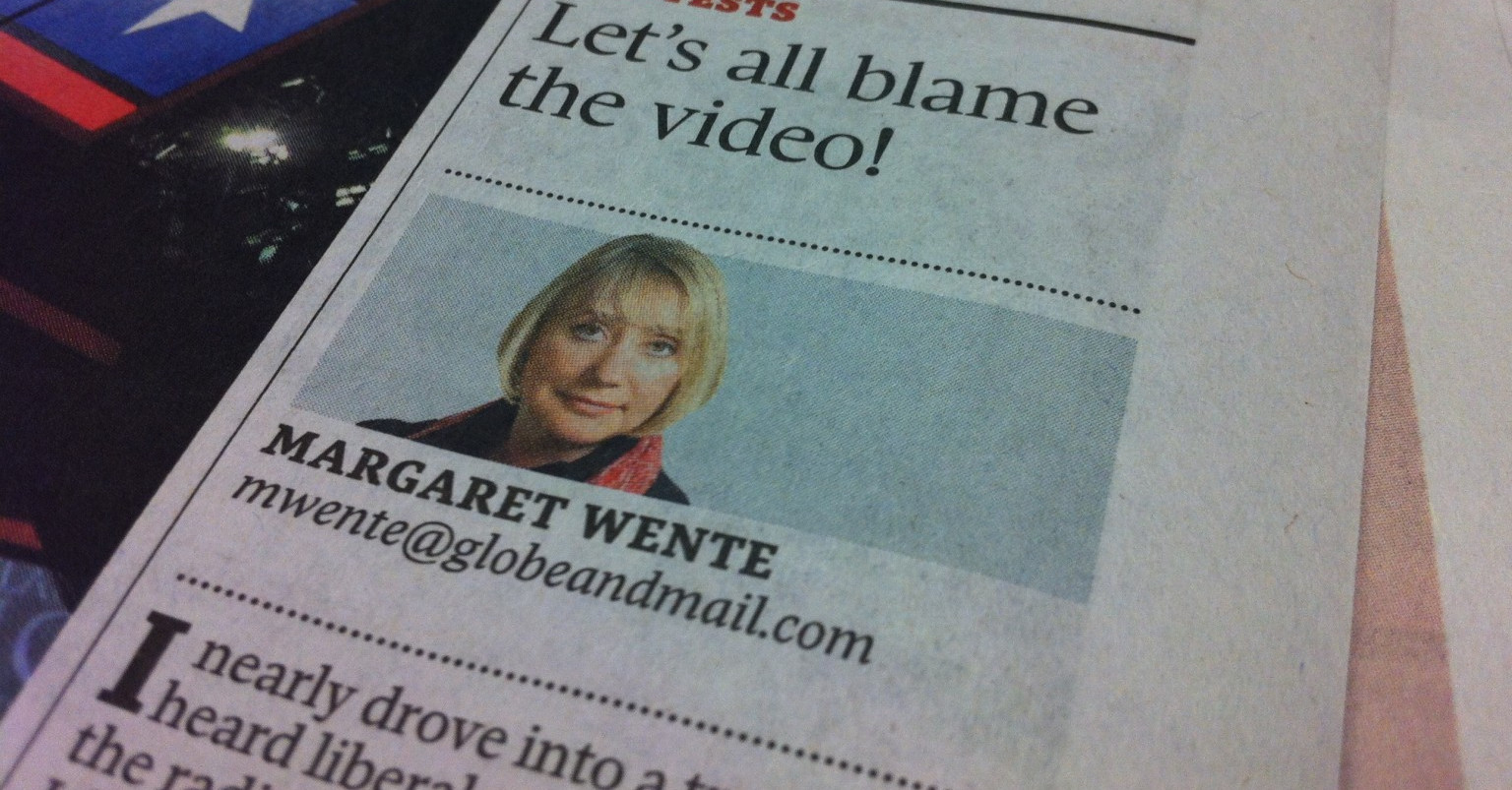Like this article? rabble is reader-supported journalism. Chip in to keep stories like these coming.
I have never met or spoken to David Walmsley, who is editor of The Globe and Mail. But in many ways I admire the way he has set his paper’s course in what are troubled times for the newspaper industry.
Among other things, he has invested heavily in investigative journalism, and embarked on a campaign to document the plight of Canadian victims of thalidomide (who have not been adequately compensated). Another campaign uncovered new facts about the tragedy of missing and murdered Aboriginal women.
This has paid off in industry accolades. Under his leadership, the Globe leads all other news organizations with 19 nominations for this year’s National Newspaper Awards. The previous year, it won in five categories (no other media organization won more than two).
That is why it’s hard to understand his clumsy ethical tap-dance over allegations that his most celebrated columnist, Margaret Wente, may be a plagiarist.
Since new evidence was unearthed by blogger Carol Waino more than two weeks ago, Walmsley has been largely silent. But he finally went on the record with J-source.
What Wente did, he said, was not plagiarism.
No? Well, it sure seems to me that it was, and it sure seems that way to Waino, who on her blog Media Culpa gives numerous examples of Wente’s words and ideas echoing or copying those of other writers. The New York Times and The Atlantic magazine seem to be Wente’s favourite poaching grounds, if you can believe it. Most shoplifters at least take the precaution of lifting from the back shelves, not the front counter.
The Globe’s only problem with Wente, Walmsley told J-source, was sloppy standards.
He didn’t specify just what type of standards she was sloppy about. Originality, perhaps? Actually interviewing the people she quotes? Actually reading the books she critiques? We’re not told. But Walmsley seems happy enough paying a large salary to a columnist who is habitually sloppy.
OK, wait, but he was just warming up.
Then he more or less said he had no idea what plagiarism is in a journalistic context. “Where we have a problem is that people are still feeling that it is plagiarism,” he told J-source. “I think that’s partly because we don’t have an industry-accepted standard of what plagiarism is in the news business.”
Well, his own newspaper happens to have an accepted standard for plagiarism. Perhaps he should read it sometime. According to the Globe’s Editorial Code of Conduct:
“It is unacceptable to represent another person’s work as your own. Excerpts from other people’s prose must be attributed so as to avoid even a suspicion of copying. Although it is sometimes reasonable to adopt a few words without attribution (in a technical definition, for example), careful judgment is required. When in doubt, consult a senior editor. Any extensive unacknowledged use of another’s words, structure or ideas may constitute plagiarism. Exception: Background from previously published Globe staff and news-service items may be recycled, verbatim or otherwise, without credit, although you should not borrow someone’s distinctive prose style in doing so.”
What’s not clear about that? Wente writes for the Globe and the Globe has a policy. Did she violate it or not? Has she ever consulted with a senior editor about her proclivity for relying so heavily on the words and thoughts of others?
Judge for yourself. Here is just one of the many examples that Waino documents on her blog.
On July 1, 2012, Clive Crook wrote in The Atlantic that “racial disparities… are narrowing… class disparities… are widening dramatically. The prosperous and the poor, regardless of race, are living in increasingly separate worlds.”
Two weeks later, on July 14, 2012, Wente wrote: “Racial disparities are narrowing, but class disparities are widening dramatically. The prosperous and the poor, regardless of race, are increasingly segregated from each other.”
Not plagiarism, Mr. Walmsley?
Even more amazing, the editor of Canada’s most prestigious newspaper was asked by J-source what the solution is. Walmsley said that for now, he’s open to any suggestion for how to improve standards in the newsroom. “If someone can come up with a) an agreed standard and b) how you actually place that pre-publication, I’m all ears.”
Hold on a moment here. Instead of taking responsibility for his own problem and solving it, Walmsley is inviting the public to come up with standards? He’s crowdsourcing a way to rein in Wente? Is that what the man is saying?
Walmsley is not a stupid man, despite what you may think. As a former newsroom manager myself, I recognize that tap-dance he’s doing. It’s the kind of weird shuffle you have to do in public when your boss the publisher tells you to eat it and make this go away.
Wente still has a job because she speaks to the one percent. She personifies the Globe’s brand.
Walmsley is just her delivery boy.
Like this article? rabble is reader-supported journalism. Chip in to keep stories like these coming.



